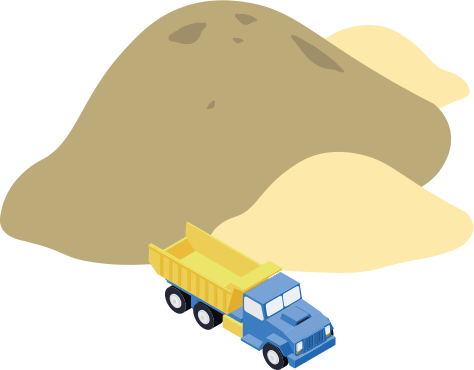You want great search engine rankings.
Have you been trying for a while? Years?
Maybe you don’t know where to start, confused by conflicting claims right and left.
Most people have serious misunderstandings of how Google works, what it takes to rank well.
What does it even MEAN to rank well?
If you were hiking a mountain, this would be the equivalent of hiking blindfolded, with no map, at night, alone and avoiding all trails, during a monsoon.
You might end up in a ditch. You won’t end up on top of the mountain.
So let’s clear the air with the most important things you need to know in order to win this game.
GO FOR GOOGLE
Here’s a good place to start. Focus on Google. There are many other search engines. Since something like 90% of all U.S. searches use Google, you can safely ignore the others (different answer if you are trying to market in China.)
Of course there are other ways of marketing online, such as Facebook and Amazon. I know a guy became a millionaire marketing on Amazon. But for most businesses, Google remains top dog for getting people to your website and getting more business.
That’s why this article is called what it is. It’s a big enough topic to fill a book. Let’s at least devote one article to it.
HOW GOOGLE THINKS
Whether you are doing it yourself or hiring someone to do it, you’re going to be a lot more successful if you understand how Google thinks. For one thing, you’ll know immediately if a vendor is feeding you a line of baloney.
The reason Google is top dog and has been now for 15 years, is its devotion to scientifically following its business model.
Think of Google as a marketplace, matching buyers and sellers. In most markets, the trick is to get the buyers to show up. If you can get buyers, sellers will flock.
Ask yourself, what will bring buyers to a market? It really comes down to just two things: One: Is it easy to get to the market, and then find what you are looking for? Two: Can you be pretty sure what you find really IS what you are looking for?
Google has simply been smarter at this than any other search engine, and has been doing it year after year. This is what Google works hard at and has been doing so since they started out, two students at Stanford with a new idea for something called Page Rank.
If people trust Google and find it easy to use, they’ll use it. Then Google can sell ads to the vendors and get rich. That’s the business model and it works because it is based on simple fundamentals.
I’m not sure what other search engines thought or think they are doing. Something else, or they just aren’t nearly as good at it as Google.
THE BATTLE BETWEEN GOOD AND EVIL
Here’s a huge part of Google’s success: Ongoing efforts to defeat attempts to trick them. Billions of dollars are spent yearly to try and gain high rankings for sites that don’t deserve them.
We have been tracking the battle between Google and the so-called “black hat SEO’s” for more than 15 years. Many of us thought Google could never win the battle. It’s not over, and it remains easy to find examples of sites ranking well that shouldn’t. But Google keeps upping their game, making it harder for the spammers.
Google has thousands of engineers, and some of the smartest people in the world working on this problem, which is central to why they dominate. Once, many years ago, they did a complete rewrite of their software, called “Caffeine”, just to make it possible for them to change faster. That’s what it took, and takes, and Google consistently does it, making important changes multiple times per year along with hundreds of smaller changes.
People use Google because it is easy to use and because it produces results they trust. If that trust factor is ever lost – bye-bye Google. If people searching for blue widgets end up on a porn site? Trust is eroded. Even if people have no good alternative to Google, it costs Google money.
EARNED RANKINGS
So, the biggest thing you need to know if you are going to compete – and win – the Google game, is that it is about trust. It is about EARNED RANKINGS. Meaning, you rank well because your website does a better job than other websites of answering what people are looking for.
If you rank number 1 for a particular search, it means one thing and one thing only. For that particular search, Google’s algorithms (the computations that evaluate your site) consider your website does a better job of answering that search than any other website in the world.
In the world.
That might give you pause. You are competing for rankings with the entire world, hundreds of millions of other sites.
SO RICH, IT’S HOPELESS?
That was not the takeaway I was going for. First of all, in most searches, location matters. Your location, and the location of the person searching. Google knows these, at least pretty closely. And if you are in Brandon and are looking for a plumber, Google is not going to serve up a listing for a plumber in Toronto, no matter how good it is.
Of course, if you are in e-commerce, you are at least in competition with every other store selling the same things in the entire country. So unless you are selling some truly unique widget, your site needs to impress the heck out of Google!
In many cases, it is a lot narrower than that. If you are looking for a plumber and you’re in Brandon, Google is not likely to serve up a plumber located in Palm Harbor. That can also be a negative. Many businesses can and want to sell to people all over Tampa Bay. Google may not be completely on board with that, thinking people are more interested in a nearby plumber.
If your website is good enough, you can compete in a wider geographic area. This is not all or nothing. The farther from your location, the worse you rank, but it is a gradual drop-off as the distance is added.
OKAY RICH – I’LL BITE. HOW DO I RANK WELL?
Last week I wrote a blog “The Customer is King.” And that is true. If your website does not serve the customer well, Google isn’t going to like that. People going to your website on a phone are going to be disappointed if it is hard to use on a phone. Or the menu is confusing.
But there’s another saying, when it comes to websites, “Content is King.” I told you last week that isn’t close to true. Well, I exaggerated a bit. Content may not be King, but it is certainly Queen, or Prince, or something (apologies for unnecessary reference to some of the greatest musical performers of our era).
The truth is, content is a big part of making the customer happy. Google thinks like this: The more unique, well-written, relevant content on your site, the more likely a site visitor is to be happy he clicked on that link and went to your site. Because he is more likely – if the site is well organized and easy to navigate – to find what he is looking for.
So given that your site is mobile-friendly, easy to navigate, and other obvious basics of what we call “UX” – the User Experience – then the big A Number One factor is Content.
Don’t believe me? After many years of being secretive on the subject, Google flat out listed the top three ranking factors. Content is one of them.
There are literally at least 200 factors that affect ranking. But no matter what else you do right, if you don’t have a user-friendly site, and lots of good content, you probably aren’t going to rank well.
WHY RANK?
This may seem a stupid question but bear with me. Why do you want to rank well?
Just ranking isn’t everything. The purpose of ranking is to send lots of quality traffic to your website – quality, meaning, people who are interested in what you have to offer.
You can rank great for search terms that no one is searching for – they generate no traffic even if you are number one.
You can also rank for search terms that don’t send the right people to your site. If you are selling elephants, great rankings for tigers won’t do you any good.
And if you are trying to SELL elephants, you want to rank for search terms people use when they are interested in buying elephants. Terms like “buy elephants.”
People searching just for “elephants” may want to know how big an elephant is, where they can see one, or a billion other things that don’t indicate what is called “buyer intent.” So 99.9% of the searches for “elephant” don’t do you any good. Now there are tons of searches for “elephant” and some of them probably ARE looking to buy an elephant. But it would take a huge effort to rank well for “elephant” searches. Usually, your first target for rankings is search terms most likely to result in a new customer.
So also, searches with location terms in them are vital if you have a local business. As in “plumbers Brandon.” There are many other similar things you can figure out about what searches are important, once you know how to look at this.
TAKEAWAYS
Here are the big conclusions, things to keep in mind if you want to rank well.
- Know what you want to rank for. That takes into account how likely someone doing that search is to become a customer, the volume of searches on that term, and how hard it will be to rank for it.
- Understand that it takes time. There is no trick that will get you ranking well fast, mostly because it takes TIME to write and build many many pages of content. And it can take a while for Google to figure out how well your site should rank (as much as a year for a new site, per Google).
We regularly shock people with estimates of how many pages it will take them to rank well. We have a proprietary method of analyzing this, so when we tell a plumber he needs 100 pages, we aren’t just pulling that out of our hat.
So you need to have a workable plan as to how you are going to build a big website full of content that pleases site visitors – and therefore pleases Google.
Then make sure your business plan doesn’t require you to rank well in the next three months or you close your doors.
- Given numbers 1 and 2, be wary of anyone making promises about fast rankings. No matter how much it is what you want to hear. You may want to be able to bench press 500 pounds tomorrow, but if you’re at 120 pounds today, no matter who says what, or how badly you want it, that is not going to happen.
It’s called Reality.
So, hopefully you don’t find Reality too discouraging. In this day, success online is more and more what makes for success in business.
It’s a game you want to win. As with most games, you can win, if you know what it takes to win, and you do what it takes.
I hope you do, and have a Grand Success of it.








